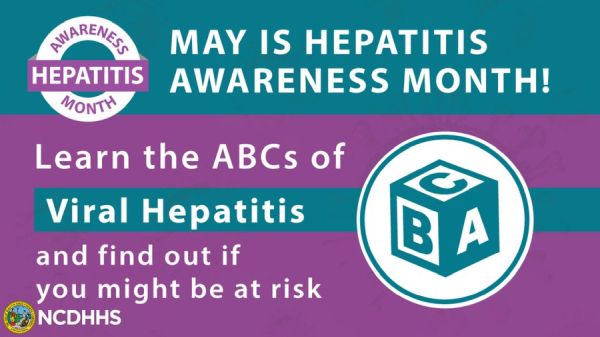
Three very important differences between Hepatitis A, B, and C

May is recognized as Hepatitis Awareness Month, an opportunity to educate ourselves and our loved ones about the importance of prevention, testing, and treatment of viral hepatitis. According to the World Health Organization, more than 325 million people worldwide are living with chronic hepatitis B or C, which can lead to liver cirrhosis and cancer if left untreated. While viral hepatitis affects people of all ages and backgrounds, it is often overlooked and underdiagnosed.
Let’s explore the significance of Hepatitis Awareness Month and how we can all raise awareness about this critical public health issue.
Transmission
- Hepatitis A is transmitted through the fecal-oral route, passed from the stool of an infected person to the mouth of another person through contaminated food or water. It can also be spread through close contact with an infected person, such as through sexual contact or caring for someone ill.
- Hepatitis B primarily spreads through contact with infected blood, semen, or other bodily fluids. This can occur through unprotected sex, sharing needles or other drug equipment, or from an infected mother to her newborn during delivery. It can also be spread through unsanitary tattooing or body piercing practices.
- Hepatitis C is primarily spread through exposure to infected blood. This can occur through sharing needles or other drug equipment, unsanitary medical practices such as blood transfusions, or from an infected mother to her newborn during delivery. It can also be spread through unsanitary tattooing or body piercing practices.
Symptoms
The symptoms of Hepatitis A, B, and C can be similar, but there are some essential differences.
- Hepatitis A typically causes flu-like symptoms such as fatigue, nausea, and abdominal pain. Yellowing of the skin and eyes (jaundice) is also common. Symptoms usually appear within two to six weeks after exposure to the virus and can last up to two months.
- Symptoms of Hepatitis B are similar to those of Hepatitis A but can also include dark urine. Many people infected with Hepatitis B may not experience any symptoms at all. In some cases, the virus can cause chronic infection, resulting in serious liver damage, including cirrhosis and liver cancer.
- Hepatitis C is often asymptomatic, meaning many people infected with the virus may not experience any symptoms.
- When symptoms do occur, they are usually mild and include fatigue, loss of appetite, and abdominal pain. Like Hepatitis B, chronic infection with Hepatitis C can cause serious liver damage, including cirrhosis and liver cancer.
Long-term Effects
Hepatitis A, B, and C are all viral infections affecting the liver. While they share some similarities in symptoms and modes of transmission, there are also significant differences that set them apart.
Hepatitis A usually resolves on its own within a few weeks and does not cause long-term liver damage. Once someone has recovered from Hepatitis A, they usually develop immunity and are unlikely to become infected again. The best way to prevent hepatitis A is to practice good hygiene, including washing hands thoroughly with soap and water after using the bathroom, and avoiding food or water that may be contaminated with the virus.
In contrast, Hepatitis B and C can cause long-term damage to the liver if left untreated. Chronic Hepatitis B and C can lead to liver cirrhosis, liver cancer, and even liver failure. However, there are effective treatments available for both conditions that can slow or even stop the progression of the disease. Antiviral medications can help to suppress the virus and reduce the risk of liver damage. In some cases, a liver transplant may be necessary.
While all three types of hepatitis can affect the liver, they differ in terms of their transmission, chronicity, and treatment. If you think you may have been exposed to any hepatitis virus, it is crucial to get tested and seek medical treatment if necessary. Early diagnosis and treatment can help to prevent serious complications and improve your chances of recovery. Contact Gastroenterology of Greater Orlando for more information about hepatitis and the differences between A, B, and C.
Also see:
- Hepatitis Awareness Month (May) ~ HHS.gov
- Hepatitis Awareness Month ~ CDC.gov
- Hepatitis Awareness Month: Recognizing the Syndemic of Viral Hepatitis, HIV, STIs, and Substance Use Disorder ~ HIV.gov
- Treatment for Hepatitis A, B, & C ~ NYU Langone Health
In the video below, Dr. Kris Kowdley discusses the three most common viruses that cause hepatitis (hepatitis A virus, hepatitis B virus, and hepatitis C virus) and how each is transmitted.
(Source: Gastroenterology of Greater Orlando)
Posted by Richard Webster, Ace News Today / Follow Richard on Facebook, Twitter & Instagram






